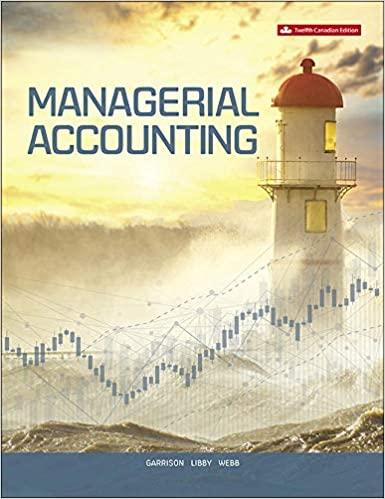Question
State if the following statements are true or false. 1.If land is purchased as a building site, the cost of removing existing structures is not
State if the following statements are true or false.
1.If land is purchased as a building site, the cost of removing existing structures is not charged to the Land account. T/F
2.Land improvements include parking lots and walkways. T/F
3.The process of allocating the cost of a plant asset to expense in the accounting periods benefiting from its use is called depletion. T/F
4.When plant assets are purchased as a group in a single transaction for a lump-sum price, the cost of the purchase is allocated among the different types of assets acquired based on their relative market values. T/F
5.It is necessary to report both the cost and the accumulated depreciation of plant assets in the financial statements. T/F
6.Plant assets are reported on a balance sheet at their book value (acquisition costs less accumulated depreciation), and not necessarily at fair (market) value. T/F
7.Decision makers and other users of financial statements are especially interested in evaluating a company's ability to use its assets in generating sales. T/F
8.Companies that have a relatively large amount invested in assets to generate a given level of sales are considered capital-intensive. T/F
9.An asset's cost includes all normal and reasonable expenditures necessary to get the asset in place and ready for its intended use. T/F
10.If a machine is damaged during unpacking, the repairs are added to its cost. T/F
11.The purchase of a property that included land, building, and related improvements is called a lump-sum or basket purchase. T/F
12.When a company constructs a building, the cost of the building includes materials and labor but not design fees, building permits, or insurance during construction. T/F
13.The cost of fees for insuring the title and any accrued property taxes are included in the cost of land. T/F
14.Extraordinary repairs are expenditures extending the asset's useful life beyond its original estimate, and are capital expenditures because they benefit future periods. T/F
15.Plant assets can be disposed of by discarding, selling, or exchanging them. T/F
16.The first step in accounting for an asset disposal is to calculate the gain or loss on disposal. T/F
17.Accounting for the exchange of assets depends on whether the transaction has commercial substance; commercial substance implies that it alters the company's future cash flows. T/F
18.A gain or loss is recorded for exchanges of plant assets with commercial substance. T/F
19.If an asset is sold above its book value, the selling company records a loss. T/F
20.Gain or loss on the disposal of assets is determined by comparing the disposed asset's book value to the market value of any assets received. T/F
21.A loss on disposal of a plant asset occurs if the cash proceeds received from the asset sale is less than the asset's book value. T/F
22.Amortization is the process of allocating the cost of natural resources to periods when they are consumed. T/F
23.Intangible assets are nonphysical assets used in operations that give owners' long-term rights or competitive advantages. T/F
24.A leasehold refers to the rights the lessor grants to the lessee under the terms of the lease. T/F
25.Natural resources are assets that include standing timber, mineral deposits, and oil and gas fields. T/F
Step by Step Solution
There are 3 Steps involved in it
Step: 1

Get Instant Access to Expert-Tailored Solutions
See step-by-step solutions with expert insights and AI powered tools for academic success
Step: 2

Step: 3

Ace Your Homework with AI
Get the answers you need in no time with our AI-driven, step-by-step assistance
Get Started


